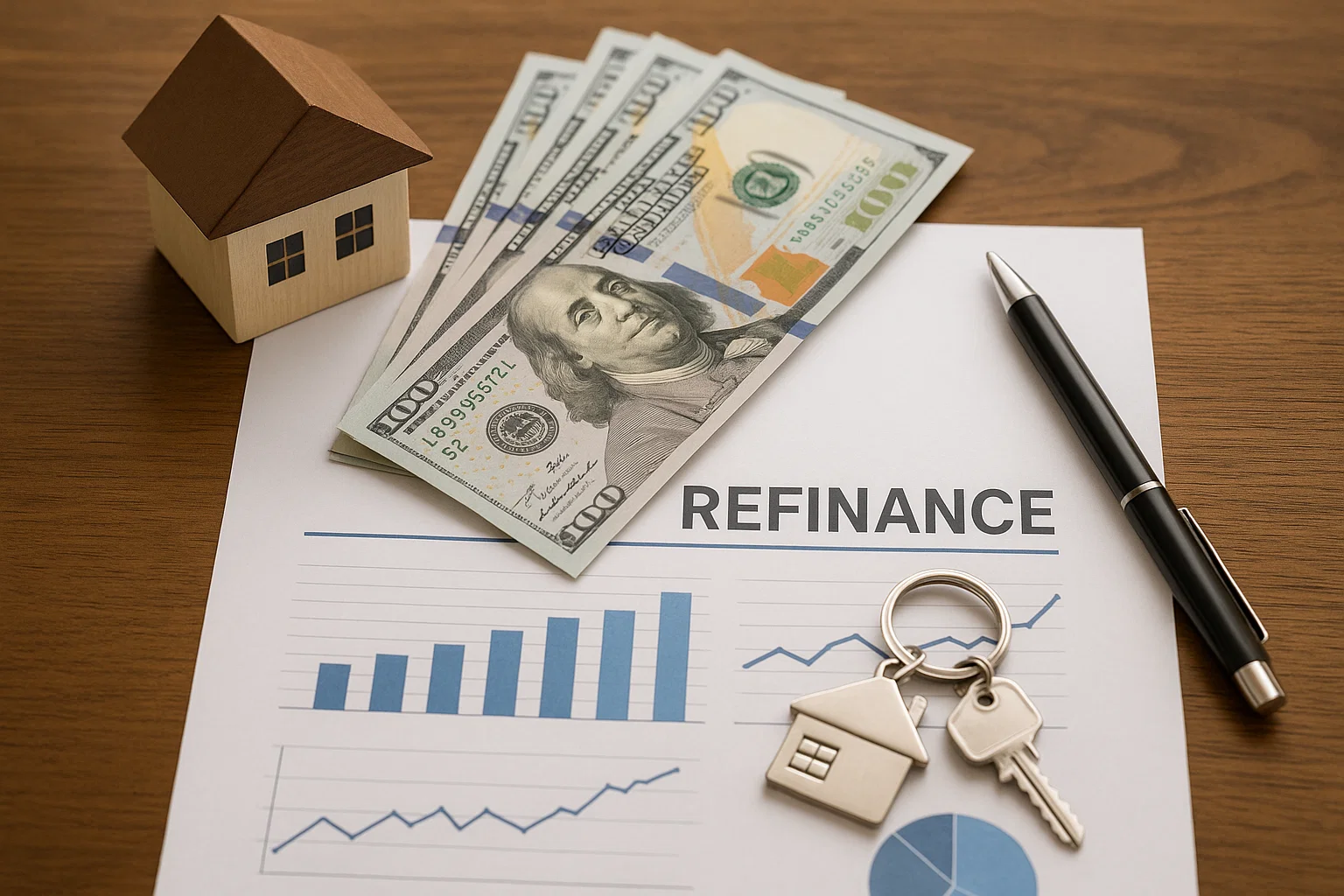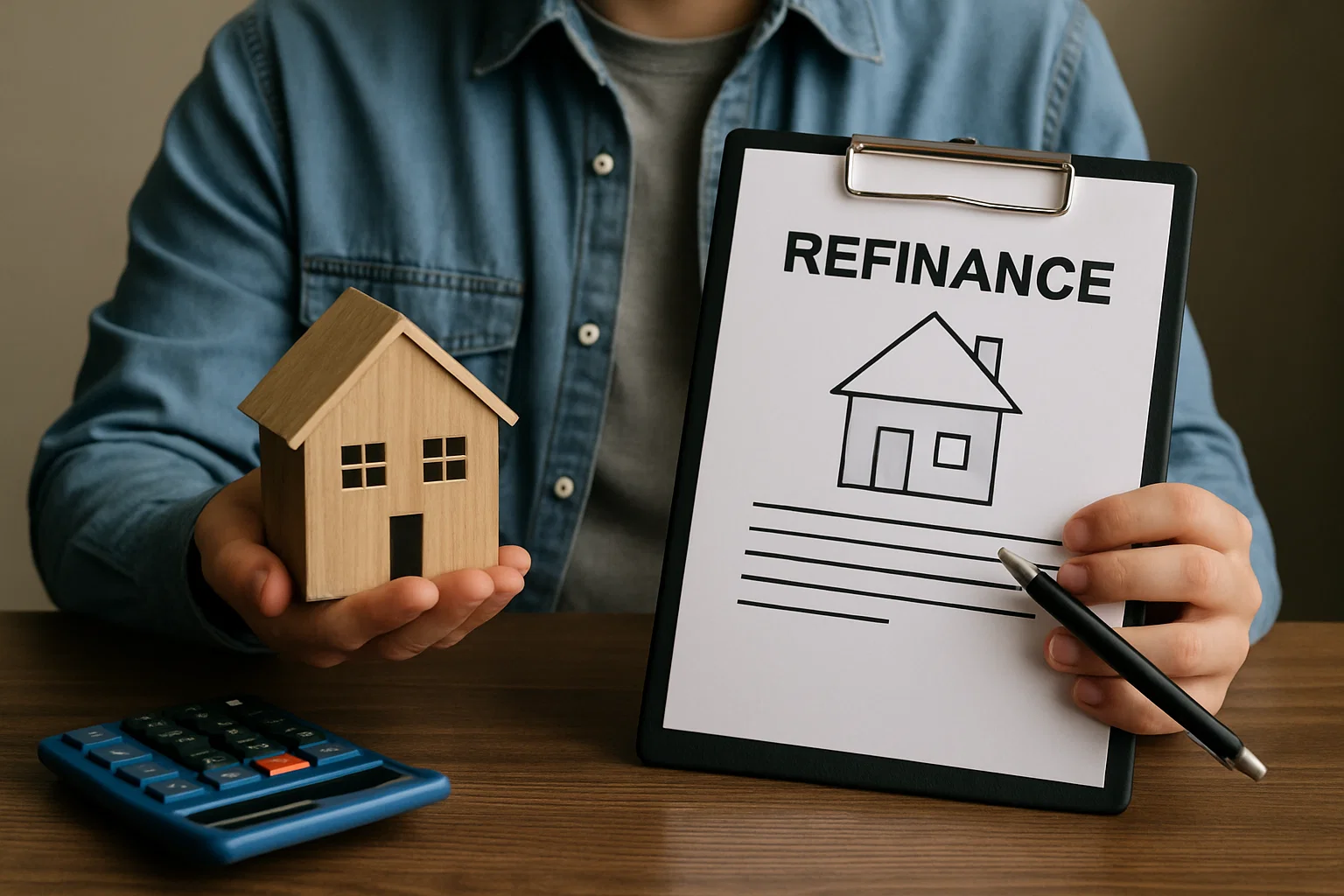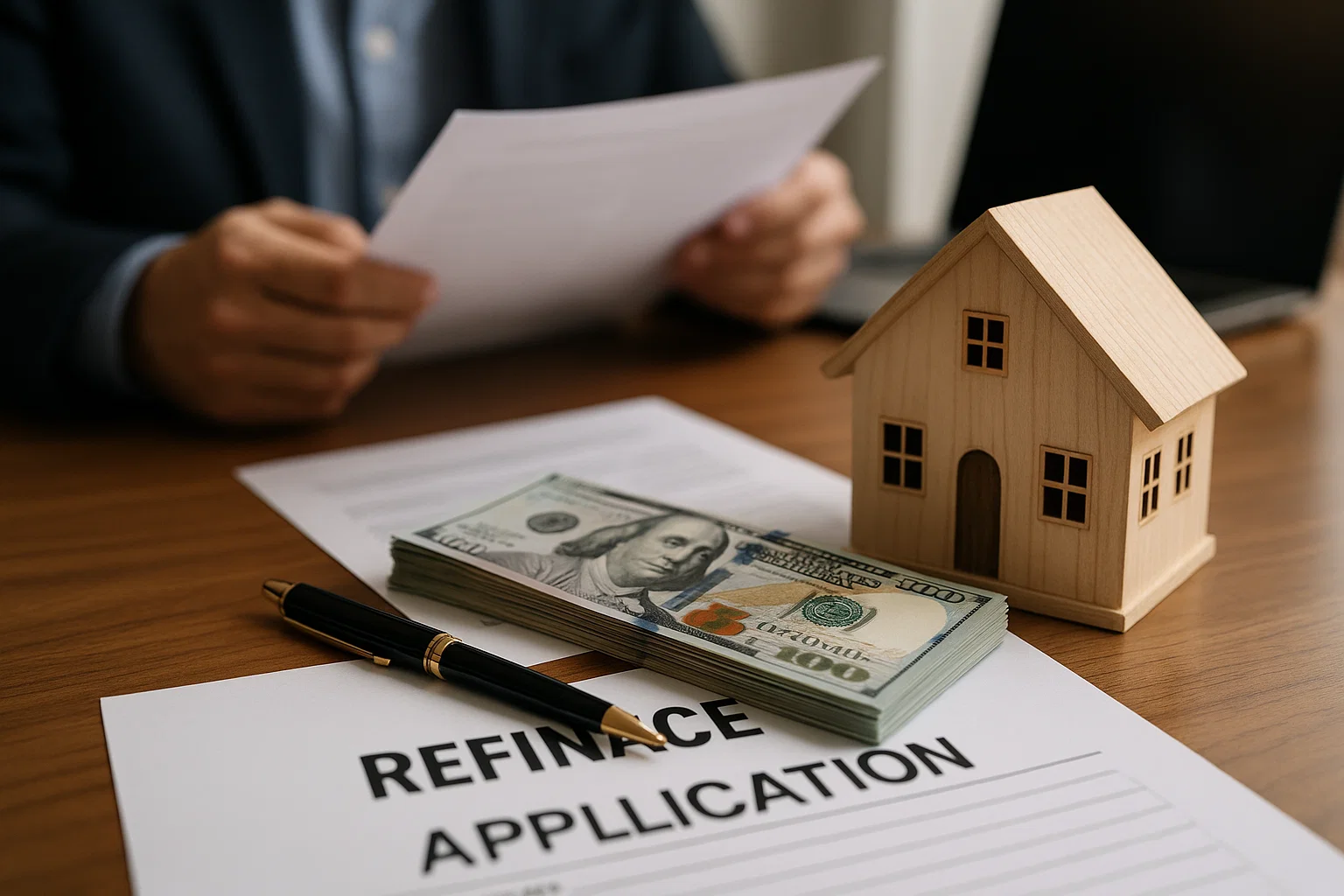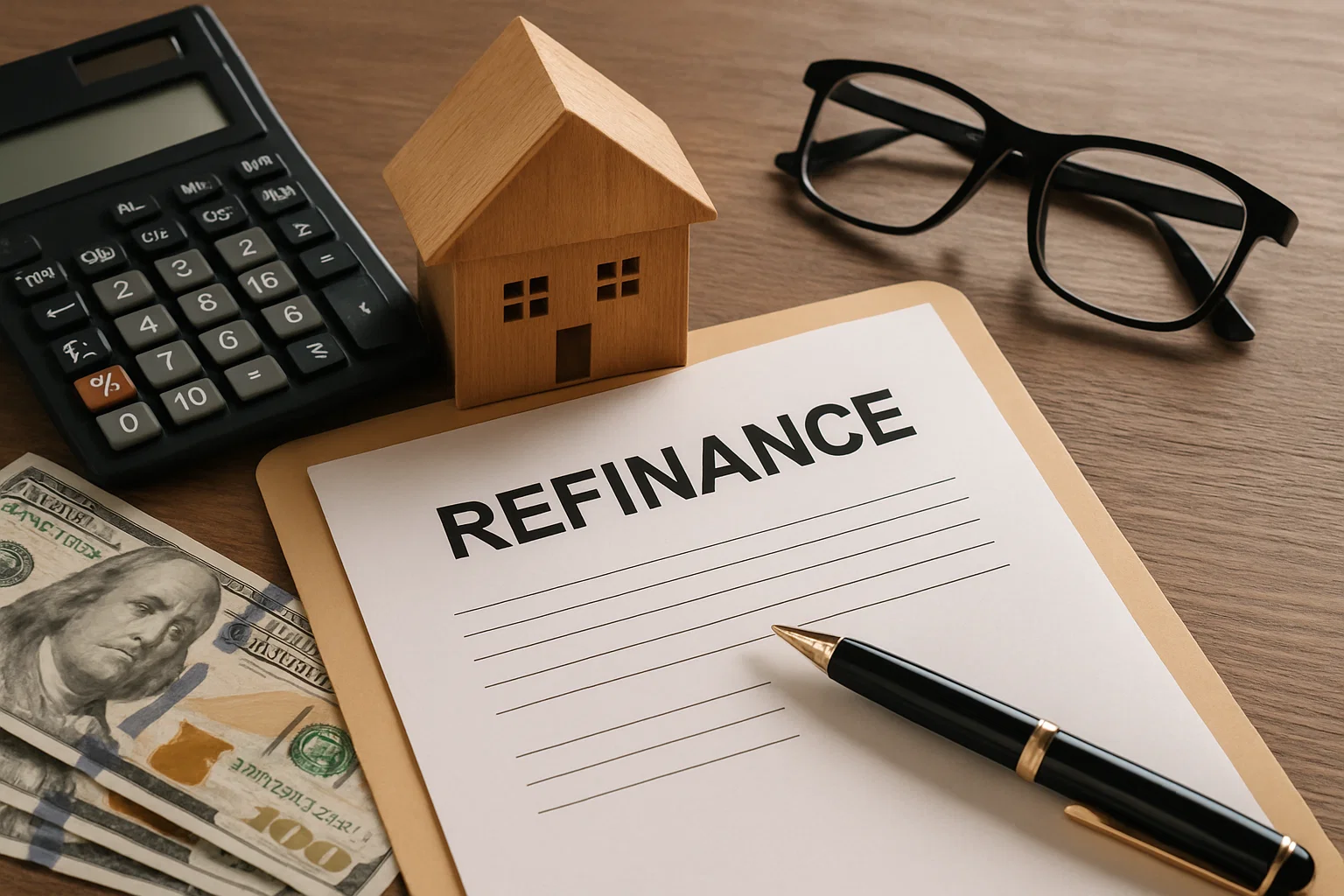VA Loan Closing Costs Explained: What to Expect in 2025
July 23, 2025
Learn everything about VA loan closing costs explained: what to expect. Get tips to save money and understand fees on your home purchase.

Alright, let's talk about one of the most misunderstood parts of getting a VA loan: closing costs. I see it all the time—veterans are thrilled about the no-down-payment benefit but get blindsided by the fees required to actually finalize the deal. Think of it this way: the loan gets you the funding, but closing costs are what pay for all the essential services that legally make the house yours.
So, What Are Closing Costs, Really?

Imagine you're at the finish line of a marathon. You've done the hard work of finding a home and getting approved, but closing costs are that final sprint to get your medal—or in this case, the keys to your new home. They aren't one single fee but a bundle of charges from various third parties who help make the sale happen.
This includes everyone from the appraiser who confirms the home's value to the title company that ensures the property has a clean history. Even with a fantastic VA loan, these services are a necessary and unavoidable part of buying a home.
A Look at the Numbers
So, how much should you budget? In 2025, you can generally expect VA loan closing costs to fall somewhere between 1% and 6% of your total loan amount. It’s a pretty wide range, and that’s because a lot of different factors come into play, like your state, the lender, and the specifics of your deal.
To give you a clearer picture, here’s a quick breakdown of what those percentages might look like at different price points.
Estimated VA Loan Closing Costs by Home Price
Loan AmountEstimated Closing Cost Range (1% - 6%)$250,000$2,500 - $15,000$350,000$3,500 - $21,000$450,000$4,500 - $27,000$550,000$5,500 - $33,000
Seeing numbers like $6,000 to $18,000 on a $300,000 loan can feel a bit jarring, I know. But here's the good news: the VA loan program gives you powerful and unique ways to handle these costs, which we’ll get into. You have more control than you think.
The key takeaway is that while these costs are significant, the VA program provides unique and powerful ways to manage them, putting you in control of your financial journey.
Before we dive deeper into the specifics of VA closing costs, it’s always a good idea to have a solid foundation by understanding the different types of mortgage loans. Knowing all your options is the first step toward making a truly confident decision.
Key Fees to Anticipate
The list of fees on your closing statement can look intimidating, but they mostly fall into just a few buckets. Here are the usual suspects you can expect to see:
- VA Funding Fee: This is a one-time fee paid directly to the Department of Veterans Affairs. It's what helps keep the loan program funded for future generations of veterans and service members.
- Appraisal and Inspection Fees: You'll need a VA-certified appraiser to confirm the home's value and condition, and you may opt for a separate, more detailed home inspection.
- Title Insurance and Search Fees: These are crucial. They protect both you and the lender from any old claims or liens on the property popping up down the road.
- Lender Origination Fees: This is what the lender charges for the work of putting your loan package together, from processing the application to underwriting it.
Getting a handle on these expenses is a huge part of the process. Just as important is knowing how your finances line up. You can learn more about how it all connects by checking out our guide on https://www.tigerloans.com/post/va-home-loan-income-requirements.
The VA Funding Fee Demystified
When you first see a VA loan estimate, one line item almost always jumps out: the VA Funding Fee. It's easy to mistake this for some kind of lender junk fee, but I assure you, it’s not. Think of it as the fuel that keeps the entire VA loan program running for veterans and service members.
This fee is paid directly to the Department of Veterans Affairs, and it's what allows them to guarantee your loan. That guarantee is precisely why lenders feel confident enough to offer those incredible zero-down-payment loans without requiring private mortgage insurance (PMI). In a very real way, your funding fee is paying it forward, ensuring the next generation of service members can access the same powerful homeownership benefits.
How Is the Fee Calculated?
So, how much are we talking about? It’s not a one-size-fits-all number. The fee is calculated as a percentage of your loan amount, and it shifts based on a few key details:
- Your Service: The rate is slightly different depending on whether you're regular military, a member of the Reserves, or in the National Guard.
- Your Down Payment: This is a big one. Putting down 5% or more can seriously slash your funding fee.
- Prior Use: If this is your first time using your VA loan benefit, the fee is lower. For subsequent uses, it's a bit higher.
The VA funding fee is often the single largest closing cost for veterans, typically falling somewhere between 0.5% and 3.6% of the loan amount. On a $400,000 home purchase, for example, that could mean a fee anywhere from $2,000 to over $14,000 if you're not making a down payment. You can see a more detailed breakdown in this helpful guide on VA loan closing costs.
The VA Funding Fee is a one-time charge that can often be rolled into the total loan amount, meaning you don’t have to pay it out of pocket at closing. This makes managing your upfront expenses much easier.
Who Is Exempt from the Fee?
Now for the best part. One of the most significant advantages of the VA loan program is that many veterans are completely exempt from paying this fee. If you qualify, this major cost simply vanishes, providing a massive financial boost.
You are exempt from paying the VA funding fee if you are:
- A veteran receiving VA compensation for a service-connected disability.
- A veteran who would be entitled to disability compensation but receives retirement or active-duty pay instead.
- A surviving spouse of a veteran who died in service or from a service-connected disability.
An Itemized Guide to Allowable Closing Costs
Okay, so we've covered the VA Funding Fee. But what about the other costs you'll see at the closing table? Think of these as the essential, third-party services that make the whole transaction happen—the behind-the-scenes work that ensures your new home is legally and financially sound.
The good news is the VA program shields you from a lot of unnecessary "junk fees." However, there are a handful of standard, allowable charges that are a normal part of buying any home. Let's pull back the curtain on what you can expect to pay.
This visual gives you a great snapshot of the typical costs involved.

Seeing it all laid out like this really helps demystify the process and gives you the confidence to budget accurately.
Common Allowable Fees
So, what are these fees? Here’s a quick rundown of the usual suspects you'll find on your loan documents:
- Lender's Origination Fee: This is what the lender charges for the work of putting your loan together—all the processing, underwriting, and paperwork. It's usually calculated as 1% of your total loan amount.
- VA Appraisal Fee: Before anything else, a VA-certified appraiser needs to confirm the house is worth what you're borrowing. This crucial step protects both you and the lender. Expect this to run somewhere between $500 and $800.
- Title Search and Title Insurance: This one is non-negotiable and for good reason. A title search ensures the seller legally owns the property, and the insurance protects you from any surprise claims or old liens popping up down the road.
- Recording Fees: Your local city or county government will charge a fee, often from $50 to $500, to officially record the deed and mortgage. This makes your ownership part of the public record.
- Credit Report Fee: Just what it sounds like—a small fee to pull your credit history, which is a standard part of any mortgage application.
Understanding each of these line items is the key to reading your loan estimate with confidence. You'll know exactly where every dollar is going, with no surprises at the closing table.
While these fees are standard, keep in mind that some lenders might package them in different ways. You've probably seen ads for loans with no closing costs, right? To get the full story, I recommend reading our article that dives into the truth about no-closing-cost loans. Knowing what's really included is your best defense against getting hit with unexpected expenses.
Here’s the rewritten section, crafted to sound like it was written by an experienced human expert.
Your Built-In Protection: Understanding Non-Allowable Fees
One of the most powerful, and frankly, under-appreciated perks of the VA loan is how it actively protects you from getting nickeled and dimed. This isn't just a loan program; it's a benefit you've earned, and part of that promise is shielding you from the kind of "junk fees" that can pop up in other types of mortgages.
Think of the VA as having your back at the closing table. They've drawn a clear line in the sand, forbidding lenders from charging veterans for certain administrative costs that don't offer any real value to you, the borrower. It's a fundamental part of what makes this loan different and reinforces the program’s commitment to your financial security.
Fees You Should Never Pay
Knowing your rights here is your best defense against unfair charges. The VA is very clear about what’s off-limits, so you won’t see vague, confusing fees for things like "document prep" or a lender's own legal costs. This rule ensures every single charge on your closing statement serves a legitimate purpose. You can get a deeper dive into these borrower protections on VeteransUnited.com.
When you get your loan estimate, keep a sharp eye out. As a VA borrower, you should never have to pay for the following:
- Fees for the lender’s attorney
- Broad "closing" or "settlement" fees charged by the lender itself
- Loan application or processing fees (these are already covered by the 1% origination fee)
- Document preparation fees
- Rate lock-in fees
By flat-out prohibiting these types of charges, the VA keeps the entire process fair and transparent. This isn't just about saving a few bucks—it's about honoring your service with a loan program you can truly trust.
Proven Strategies to Lower Your Closing Costs

Understanding what closing costs are is the first step, but actively working to reduce them is where you really come out ahead. The great news is the VA loan program gives you some powerful leverage to slash what you owe at the closing table. Let’s get into the practical, real-world tactics that can save you thousands.
The single most effective tool in your arsenal is negotiating for seller concessions. With a VA loan, you can ask the seller to contribute up to 4% of the home's sale price toward your costs. This isn't just a small gesture; that 4% can be used to pay for almost everything—the VA funding fee, appraisal, title search, and even your prepaid property taxes and insurance.
Think about what that means. On a $350,000 home, you could negotiate for the seller to cover up to $14,000 in closing costs. This move alone could bring your cash-to-close amount to near zero.
Leverage Lender and Financing Options
Another excellent strategy involves working with your lender on a lender credit. Here’s how it works: the lender agrees to pay for some, or even all, of your closing costs. In exchange, you accept a slightly higher interest rate. This is a fantastic option if you're a bit short on cash upfront but are perfectly fine with a small bump in your monthly mortgage payment.
Your goal is to find the right balance. A lender credit can make homeownership accessible right now, while seller concessions reduce your costs without affecting your long-term loan terms.
Finally, don't forget how you can handle the VA Funding Fee. As we mentioned, you can almost always roll this significant expense right into your loan balance. While you’ll pay interest on it over the life of the mortgage, it completely removes a huge out-of-pocket cost at closing. Beyond these VA-specific benefits, exploring broader financial strategies is key to finding the best loan for your unique circumstances.
Putting these strategies into play requires good timing and clear communication. To get a better handle on the process, check out our guide on how long the VA loan approval really takes, so you can plan your negotiations perfectly.
Your Questions on VA Closing Costs Answered
Let's dive into the questions I hear most often from veterans and military families. These are the nitty-gritty details that can cause a bit of confusion, so I want to give you clear, straightforward answers. Think of this as tying up the loose ends so you can walk into closing feeling completely prepared.
Can I Roll All My Closing Costs Into the VA Loan?
This is a common sticking point, so let's clear it up. For a standard VA purchase loan, the only cost you can typically roll into your loan balance is the VA Funding Fee.
Everything else—the appraisal fee, title insurance, loan origination fees—is usually due at the closing table. The good news? You can negotiate for the seller to pay these for you (called seller concessions) or get a lender credit, which can dramatically lower, or even eliminate, your out-of-pocket expenses.
Are Closing Costs Different for a VA Streamline Refinance?
Yes, they are, and this is where the VA loan really shines. With an Interest Rate Reduction Refinance Loan (IRRRL), often called a "VA Streamline," the rules are much more flexible.
Not only is the funding fee lower (just 0.5%), but the VA allows you to roll all closing costs into the new loan. This is what makes a true "no-cost" refinance a reality for so many veterans looking to snag a lower interest rate.
The ability to finance all closing costs in an IRRRL is a unique advantage, making it easier for veterans to lower their interest rate and monthly payment without needing upfront cash.
Who Is Exempt from Paying the VA Funding Fee?
You won't have to pay the funding fee at all if you meet certain criteria set by the Department of Veterans Affairs. This exemption is a huge benefit.
Generally, you're exempt if you are a veteran receiving VA compensation for a service-connected disability. The exemption also applies to eligible surviving spouses of veterans who passed away in service or from a service-connected disability.
Do I Still Pay Closing Costs with No Down Payment?
Yes, you do. It’s easy to mix these two up, but they are completely separate parts of the home buying equation. The 0% down payment benefit is about your initial equity stake in the home, while closing costs cover the professional services needed to get the loan finalised.
Even if you put zero down, you're still on the hook for closing costs unless you've arranged for the seller or your lender to cover them for you.
While getting a handle on closing costs is crucial, don't forget the very first steps. Being prepared for the pre-approval process sets the stage for a smooth transaction. You can get organized with a handy mortgage pre-approval checklist.
Ready to take the next step toward homeownership with confidence? The experts at Tiger Loans Inc are here to guide you through every part of the VA loan process, from pre-approval to the closing table. Start your journey today!

Alex Chen

Alex Chen













Get in touch with a loan officer
Our dedicated loan officers are here to guide you through every step of the home buying process, ensuring you find the perfect mortgage solution tailored to your needs.
Options
Exercising Options
Selling
Quarterly estimates
Loans
New home

Stay always updated on insightful articles and guides.
Every Monday, you'll get an article or a guide that will help you be more present, focused and productive in your work and personal life.


.png)
.png)
.png)
.png)
.png)
.png)
.png)
.png)
.png)
.png)


.png)


.png)
.png)
.png)
.png)
.png)
.png)
.png)
.png)
.png)
